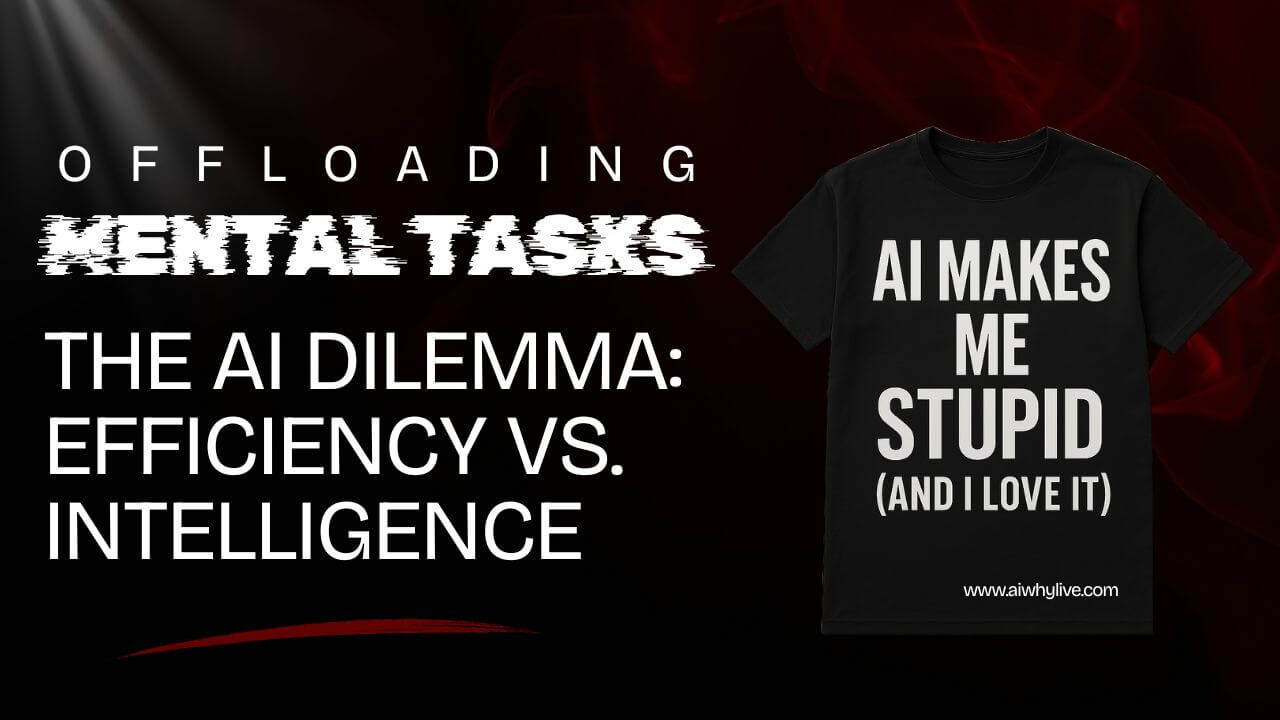When cognitive outsourcing feels good, but dulls the edge that makes you human
Let’s be honest: AI feels amazing.
It finishes your sentences, formats your emails, explains quantum physics like you’re five, and reminds you to sound confident—but not too aggressive—in cover letters. With tools like ChatGPT, Copilot, and Claude, thinking has never been smoother.
But here’s the slippery truth: the smoother thinking becomes, the less we notice we’ve stopped doing it.
We call it Neural Lube—the silky cognitive comfort that AI provides when we let it do the heavy lifting. It removes friction from learning, deciding, and even reflecting. And just like any other lubricant, it’s not good or bad in itself. But overused? It makes it way too easy to slide into mental laziness.
🧠 Cognitive Outsourcing: What Are We Really Offloading?
We’ve covered this phenomenon before in AI Makes Me Stupid—And I Love It, where we celebrated offloading as a win for productivity. If AI can handle the grunt work, we said, then we can focus on higher-order thinking. But here’s the question we didn’t ask: Are we actually doing that?
In many cases, the answer is no.
- Students are using AI to write essays they barely skim
- Employees are copying AI-generated emails without reading them
- Creators are losing their voice by letting AI find “their tone.”
The risk isn’t that AI gets smarter—it’s that we quietly surrender our capacity to think deeply, to struggle productively, and to feel the contours of an idea as it sharpens into understanding.
🇵🇭 The Filipino Mind in the Smooth Brain Era
For Filipinos, mental agility has always been our edge. We thrive on diskarte—resourcefulness under real-world pressure. But when AI starts doing the legwork, we might be trading diskarte for dependence.
- Teachers are templating AI-powered lesson plans
- Startups copy-pasting pitch decks generated in two clicks
- BPO agents relying on script-finishers instead of learning customer intuition
This isn’t just about productivity. It’s about erosion—of wit, craft, and ownership.
💡 The Irony of Knowing But Not Learning
AI gives us answers. But learning doesn’t come from answers. It comes from wrestling with questions.
As Is ChatGPT Making Us Dumber? warns, relying too much on machine-generated responses makes it harder for people to build lasting understanding. You might remember the facts, but you didn’t earn them. And if you didn’t earn them, you can’t really use them in life’s unexpected moments.
Think of it like gym reps: letting AI “think” for you is like watching someone else lift the weights and saying you exercised.
✍️ Smooth Writing, Dull Thinking?
Try this test: write a paragraph without AI. Just you, the blank page, and your brain. Frustrating, right? That’s the point. The friction is the forge.
What used to be called “writer’s block” might now be the gateway to clarity. What felt like mental gridlock was actually your brain trying to work something out. And if we skip that too often, we’re not just making our lives easier—we’re making our minds weaker.
🧭 Final Thought: Don’t Lube Away the Genius
Yes, Neural Lube makes everything feel smoother. But don’t confuse smooth with smart.
Use AI with intention. Let it sharpen your ideas, not replace them. Let it co-write, not ghostwrite. Let it collaborate—not colonize.
Because the moment thinking gets too easy is also the moment we stop doing it.
And in a world where everyone can ask, generate, and automate—the ones who still choose to think are the ones who’ll shape what happens next.






